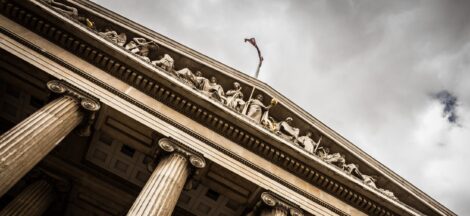The U.S. Securities and Exchange Commission sent shockwaves through the cryptocurrency world when this summer when it ruled tokens sold by The DAO failed to pass the Howey Test and were considered securities for investment purposes. Here’s a look at the Howey Test and why it matters to initial coin offerings.
Securities and Exchange Commission v. Howey Co
The U.S. Supreme Court in 1946 heard a case that concerned whether a leaseback agreement was legally an investment contract. The case involved two Florida corporations which offered real estate contracts for tracts of citrus groves to finance future developments. The purchasers could then lease the land back to the defendants, which would tend to the land and harvest the produce. Most of the purchasers weren’t Florida residents or farmers and were willing to lease the land back.
The SEC filed a lawsuit, claiming the defendants had violated the Securities Act of 1933 because they did not file a registration statement with the commission. In its decision, the Supreme Court held the agreement was a form of security and, in the process, developed a landmark test for determining whether certain transactions are investment contracts subject to registration requirements.
Under the test, a transaction is an investment contract (or security) if:
- It is an investment of money
- There is an expectation of profits from the investment
- The investment of money is in a common enterprise
- Any profit comes from the efforts of a promoter or third party
Later cases have expanded the term “money” in the Howey Test to include investment assets other than money.
What’s This Have To Do With ICOs?
There have been in recent months a growing number of startups that have raised capital using ICOs. But there was an open question of whether the SEC would view these token sales as securities offerings that required registration. This summer, the SEC provided some guidance on its views when it issued a report on its investigation regarding an ICO conducted by The DAO.
In its report, the SEC concluded The DAO tokens were securities. And in doing so, the commission sought to characterize the tokens under the Howey Test. It concluded that payment in virtual currencies, like Ether or Bitcoin, constitute investments for money. In the case of The DAO, it found investors reasonably expected to earn a profit, and those profits were reliant on the managerial efforts of others.
Going forward, the Howey Test will need to be front of mind for companies considering using distributed ledger or blockchain technology to facilitate the raising of capital. If a token is considered an investment contract under the test, it will likely need to be registered with the SEC or an exemption from registration will have to be found.






Nice post, Amit. Tks.